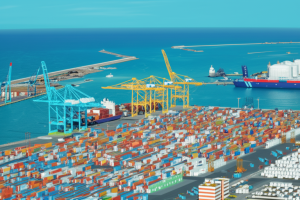The Supreme Court has declined to expedite a legal challenge brought forth by two toy companies seeking to overturn President Donald Trump’s tariffs. The companies, Learning Resources Inc. and hand2mind Inc., had requested that the Supreme Court hear their case on an expedited basis, even before the federal appeals courts had made their rulings. This request was denied, meaning the standard appeals process will proceed, and the Trump administration will have its usual 30-day period to respond.
The core of the legal battle centers on the Trump administration’s authority to impose tariffs using the International Emergency Economic Powers Act (IEEPA) of 1978. The toy companies argue that this act does not grant the President the power to levy such taxes on imports, contending that this authority should reside with Congress. A federal district court had previously sided with the toy companies, ruling that the administration lacked the necessary authority under IEEPA to implement these tariffs. However, this ruling is currently under appeal, and an appeals court has allowed the tariffs to remain in effect while the case is being reviewed.
The toy companies sought an “ultra-fast track” to the Supreme Court, arguing that the tariffs have a “massive impact on virtually every business and consumer across the Nation” and cause “unremitting whiplash” due to the President’s asserted “unfettered tariffing power.” They aimed to have the Supreme Court consider their case before the appellate courts, suggesting oral arguments could occur in a special September session or during the court’s fall term in October.
The Trump administration, however, opposed the expedited review, with the U.S. Solicitor General stating that the companies had “not justified such a stark departure from established practice.” The administration maintains that it is legally using powers granted by the Constitution and Congress to address national emergencies like trade deficits and drug trafficking.
The Supreme Court’s decision not to fast-track the case means that the legal proceedings will follow the more conventional timeline. This case is distinct from another broader legal challenge to the President’s tariff authority, which is also working its way through the court system. The outcome of these cases could have significant implications for businesses, particularly the toy industry, where approximately 80% of toys sold in the U.S. are manufactured in China. Tariffs have already led to uncertainty and apprehension among toy manufacturers, with some concerned about the impact on research and development and the potential for reduced U.S. orders. For consumers, potential tariff increases could also translate into higher prices for everyday goods, including toys.




